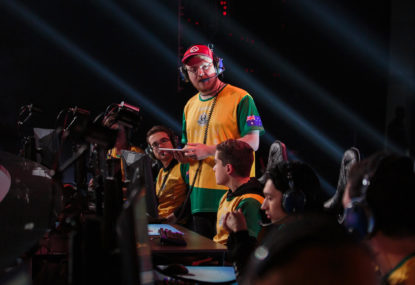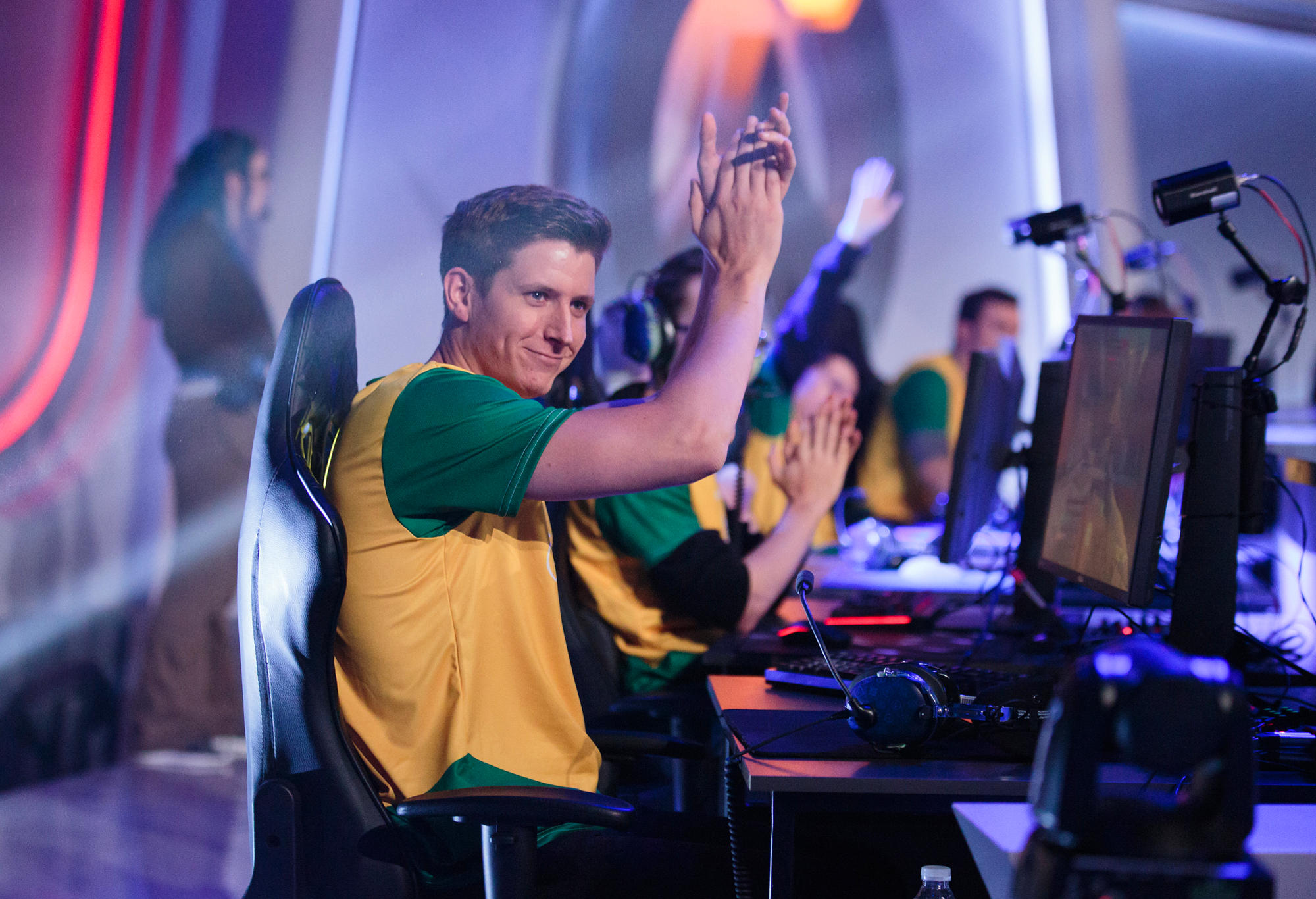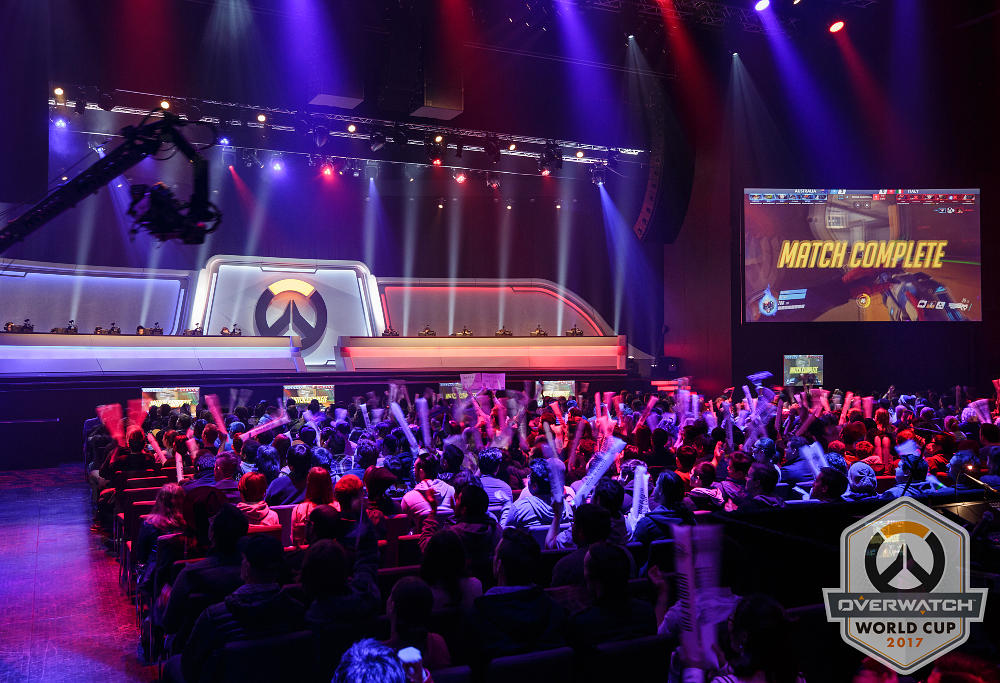2022 Trivia: The Roar's jam-packed Christmas Day sports quiz!
The jam-packed month-by-month quiz full of 2022 sports trivia!

This past weekend, Australia stunned the esports world as they defied pre-tournament expectations to emerge from the Overwatch World Cup’s ‘group of death’ in second place.
Coach Gunba (Jordan Graham) was frank when I asked him whether this was indeed the toughest group in the tournament, saying; “It is, it really is.
“You look at the European group stage [Group D] and there’s France, who last World Cup were about our level. And then there’s the UK, who Australia was considerably better than. So you see these other groups with second team being much worse than Australia, I think that’s kind of frustrating.
“This group has four teams that probably should be at BlizzCon.”
Overwatch League star Custa (Scott Kennedy) concurred, noting that even Spain – predicted to finish last – had two Overwatch League players on their roster.
It was a rollercoaster ride for the massive number of Australian fans in attendance, with a comprehensive loss on the first map to supposed easybeats Spain throwing up early red flags. By the end of day one, however, they’d not faltered again – claiming a 3-1 victory over the Spaniards before toughing out a surprisingly difficult 4-0 win over hosts Thailand.
The expectation heading into day two was, given they were no chance against top-ranked China and Sweden, they’d need to take care of Denmark and hope results elsewhere fell their way. So, when they fell 3-1 to the Danish, you could forgive the Aussie fans for thinking all was lost.
But, like many of our most famous national sides, they found another gear and orchestrated a seemingly-unthinkable 4-0 demolition of the heavily-favoured Swedes. They pushed China all the way on day three too, only succumbing in a tiebreaker fifth map, but their earlier triumphs and friendly results elsewhere meant they were safe.

Custa celebrates after an Australian win. (Photo: Robert Paul/Blizzard Entertainment)
While Australia progressed to BlizzCon last year, after a splendid performance at a group stage in Sydney, there’s no doubt this time felt more special. They no longer had the comfort of playing at home and were up against vastly superior opposition.
So, how do we translate this success into a more vibrant esports scene in Australia?
Custa and Gunba, two of Australia’s most prominent esports athletes, while not at all demanding anything like fame, still find it easier to lie about their profession because of the confusion they see otherwise.
“Usually you get the disbelief,” Custa said.
“It depends the generation that you talk to honestly, if you talk to the older generation they go “Oh what, my kid plays, can he do what you do?” And stuff like that, they don’t really understand it, which is the hardest thing but its always interesting talking to people about it and explaining it.
“But the younger generation are a lot more understanding and accepting of it.”
Gunba agreed.
“It’s not as simple as saying “I do this for a living”, its always like, “okay you do that for a living. Where are you working? What kind of job are you doing? What is it? What game are you playing?”
“It’s always so many questions to explain what you do for a living that it’s not worth it. It kind of sucks.”
It’s not all doom and gloom though. Both agreed that tournaments like the Overwatch World Cup and Overwatch League were helping improve the visibility of esports, as well as normalising it as an activity.
“I think that every other esport before Overwatch was built through grassroots,” said Gunba.
“They kind of built it up and it became a team game and they slowly added on esports and the end result is always based off the things that happened before it. I think Overwatch is the first case where someone’s come in and professionally designed the entire thing from the ground up.
“So I think it’s making esports more professional and more available.”
“I think it’s doing a really good job bringing in crowds that other games haven’t brought in,” Custa added.
When I asked what needed to be done to push esports forward in this country Custa was frank, saying “better internet” almost before I’d finished speaking.
“I think Australia is always going to be disconnected from the rest of the world, because it’s just so far away from everything and, you know, ping.
“If anything ever comes up where the internet can function just as well as it can from west coast to east coast of USA as it can to west coast of LA to Australia, everything will be great.
“But until that happens it’s going to be always a struggle,” he said.
Gunba had a similar take, and actually had a surprising insight into how the problem could be solved.
“I think Australia is in a geographically great place in theory, because Asia is obviously the heart of esports. It’s just the cables, the cables of internet, they go in weird directions. Playing in Asia is almost impossible, I think connecting Australia to Asia as a gaming region would do a lot of good.
“But there’s infrastructure required to do that. So if you’re a region like, say, Europe, Sweden is not a big country, but they play in a bigger ecosystem, so it’s easier for them to develop talent and get them to teams and that doesn’t exist in Australia because Australia is only Australia.

(Image: Blizzard Entertainment)
“The technology is there, there’s just no incentive for people to build cables under the ocean to Asian countries. There’s a language barrier, it’s really only good for gaming.
“Blank Esports and me, we got our start by practicing against Asian teams, and just dealing with the lag and using VPNs and stuff like that. So that’s something that’s already starting to exist, but there’s physical limitations that haven’t been addressed.”
At the end of the day, though, while technological issues will always make the practicing and behind-the-scenes aspects harder, what matters most to the players is the fan support.
“[When you play for Australia] you feel more pride to your region. The fans that are cheering you on, you know they’re cheering you on for your nationality, your pride, and all that kind of of stuff, so that’s sort of hits you a little bit closer to home,” said Custa.
If Australian fans continue to offer our teams the zealous support they’re quickly becoming renowned for, then Australian esports is, in a way, very much ahead of the curve.
Disclaimer: Stirling Coates was to flown to Bangkok courtesy of Blizzard Entertainment for the purposes of covering this event.